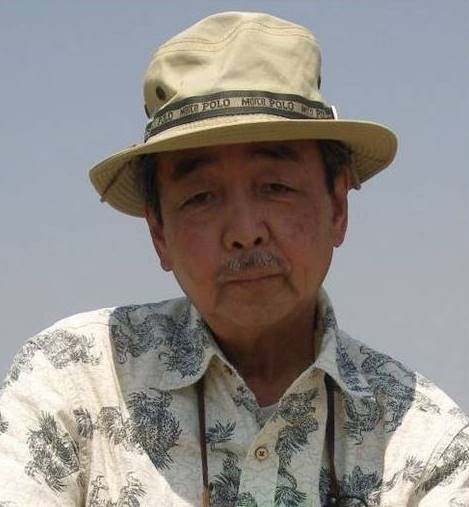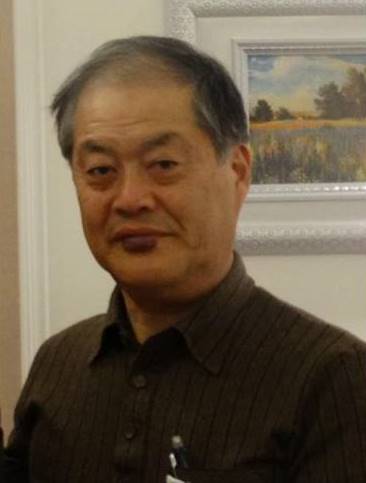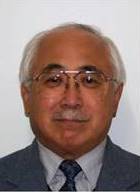
Governance
Articles of Association
A copy of the Articles of Association of RCC in Japanese can be accessed from here.
Board
The board meets once a year. It develops strategic action plans for fulfilling our mission and reviews the progress.
Members of the board

George Archibald
Dr. Archibald's visionary leadership in international conservation efforts over the past 40 years has given flight to crane conservation worldwide. In 1973, when many species of cranes were on the brink of extinction, Dr. Archibald, along with a colleague, Dr. Ronald Sauey, established the International Crane Foundation in Baraboo, Wisconsin as the world center for the study and preservation of cranes. Dr. Archibald is a true conservation ambassador who uses his unique brand of crane diplomacy to work in sensitive places. He leverages the charisma of cranes to unite people from diverse cultures and countries to work together to preserve the landscapes necessary for the survival of both cranes and people. Born in New Glasgow, Nova Scotia, Canada, Dr. Archibald received his undergraduate degree from Dalhousie University in Halifax, Nova Scotia in 1968, and completed his Ph.D. at Cornell University in 1977. In recognition of his many accomplishments, Dr. Archibald has received four honorary doctorates and many awards including the Gold Medal from the World Wildlife Fund, a Fellows Award from the MacArthur Foundation, the Wildlife Conservation Medal from the Zoological Society of San Diego, the Lilly Medal presented by the Indianapolis Zoo, and the Douglas H. Pimlott Award from Nature Canada. In 2013, Dr. Archibald was awarded the Order of Canada on behalf of Queen Elizabeth II, and received the inaugural Dan W. Lufkin Prize for Environmental Leadership from the National Audubon Society. He and his wife, Kyoko, live in the Baraboo countryside where they enjoy gardening and aviculture.
Dr. Archibald's visionary leadership in international conservation efforts over the past 40 years has given flight to crane conservation worldwide. In 1973, when many species of cranes were on the brink of extinction, Dr. Archibald, along with a colleague, Dr. Ronald Sauey, established the International Crane Foundation in Baraboo, Wisconsin as the world center for the study and preservation of cranes. Dr. Archibald is a true conservation ambassador who uses his unique brand of crane diplomacy to work in sensitive places. He leverages the charisma of cranes to unite people from diverse cultures and countries to work together to preserve the landscapes necessary for the survival of both cranes and people. Born in New Glasgow, Nova Scotia, Canada, Dr. Archibald received his undergraduate degree from Dalhousie University in Halifax, Nova Scotia in 1968, and completed his Ph.D. at Cornell University in 1977. In recognition of his many accomplishments, Dr. Archibald has received four honorary doctorates and many awards including the Gold Medal from the World Wildlife Fund, a Fellows Award from the MacArthur Foundation, the Wildlife Conservation Medal from the Zoological Society of San Diego, the Lilly Medal presented by the Indianapolis Zoo, and the Douglas H. Pimlott Award from Nature Canada. In 2013, Dr. Archibald was awarded the Order of Canada on behalf of Queen Elizabeth II, and received the inaugural Dan W. Lufkin Prize for Environmental Leadership from the National Audubon Society. He and his wife, Kyoko, live in the Baraboo countryside where they enjoy gardening and aviculture.

Shinichi Hanawa (Vice chair)
Mr. Hanawa was born in Sendai, Miyagi Prefecture and studied animal ecology at the Tohoku University. He then joined the Research Division of the Wild Bird Society of Japan. He was the founding editor of Strix, the scientific journal published by the Research Division. Since 1984, he has conducted aerial surveys of red-crowned cranes in Hokkaido with a predecessor of the RCC. His collaboration on research and conservation of the red-crowned crane continued when he joined the Nature Conservation Unit of WWF Japan in 1991. Mr. Hanawa prepared a briefing on the research and conservation of the red-crowned cranes in Hokkaido when His Royal Highness the Duke of Edinburgh, the president of WWF International, visited Kushiro Wetlands in 1997. Currently, Mr. Hanawa is a freelance conservationist. Aside from the collaboration with the RCC, he has been involved in projects on conservation of wetlands through the Ramsar Convention and conservation of subtropical forests and coral reefs in Okinawa Prefecture. Mr. Hanawa is passionate about conservation of the Kushiro Wetlands and hopes that the red-crowned cranes and Blakiston’s fish-owl will find their habitats into the future.
Mr. Hanawa was born in Sendai, Miyagi Prefecture and studied animal ecology at the Tohoku University. He then joined the Research Division of the Wild Bird Society of Japan. He was the founding editor of Strix, the scientific journal published by the Research Division. Since 1984, he has conducted aerial surveys of red-crowned cranes in Hokkaido with a predecessor of the RCC. His collaboration on research and conservation of the red-crowned crane continued when he joined the Nature Conservation Unit of WWF Japan in 1991. Mr. Hanawa prepared a briefing on the research and conservation of the red-crowned cranes in Hokkaido when His Royal Highness the Duke of Edinburgh, the president of WWF International, visited Kushiro Wetlands in 1997. Currently, Mr. Hanawa is a freelance conservationist. Aside from the collaboration with the RCC, he has been involved in projects on conservation of wetlands through the Ramsar Convention and conservation of subtropical forests and coral reefs in Okinawa Prefecture. Mr. Hanawa is passionate about conservation of the Kushiro Wetlands and hopes that the red-crowned cranes and Blakiston’s fish-owl will find their habitats into the future.
 Kunikazu Momose (Chair)
Kunikazu Momose (Chair)
Mr. Momose still vividly remembers his first encounter with the red-crowned crane at the Bekkanbeushi wetlands in the 1970s. He was on a train to Nemuro to do some fieldwork on the mudflats at Furenko. In 1979, Mr. Momose met Dr. Archibald at Fukushimagata Bird Banding Station in Niigata Prefecture and was invited to spend some time at the International Crane Foundation in the USA. That was the beginning of his long association with cranes. Back then, he was a freelance ornithologist, enjoying bird banding and working at Gyotoku Wildlife Conservation Area in Chiba Prefecture. Mr. Momose met Professor Masatomi at Izumi, Kagoshima Prefecture when he participated in a research project on hooded cranes and white-naped cranes. He was invited to join Professor Masatomi in Hokkaido to work on research projects that provided a scientific basis for conservation of the red-crowned crane. In 1982, with Professor Masatomi and others, he started a predecessor of the RCC. In 1986, Mr. Momose joined Yamashina Institute for Ornithology in Chiba Prefecture. His main responsibility was collecting and curating scientific specimens. However, he continued to participate in the aerial surveys, winter censuses and banding of chicks of red-crowned cranes in Hokkaido. In 2004, Mr. Momose moved to Kushiro so that he could spend more time on research and conservation of the red-crowned crane. Mr. Momose has been the chairperson of the board of the RCC. He is also a council member of the International Red-crowned Crane Network which has been formed in 2010 and the chairperson of the International Hooded and White-naped Cranes Network which has been formed in 2015. Mr. Momose joined the steering committee for the Crane Specialist Group of the Wetlands International and the International Union for Conservation of Nature in 2012.
Christopher Hunt
Tadaaki Fujimura
Hisanori Fujiara
Yukihiro Hanada
Shigehiko Momose
Advisory board

Hiroyuki Ishi
Professor Ishi is a world renowned environmental scientist and journalist. Soon after graduating from the University of Tokyo with a degree in biology, he began his career as a science journalist at Asahi Shimbun, one of Japan's leading newspapers. During his tenure at the newspaper, he served as overseas correspondent in the New York, Nairobi and Vancouver bureaus, as well as science editor and senior staff writer. He has also undertaken field research in 130 countries around the world. In 1994, Professor Ishi left Asahi Shimbun for a Professorship at the Graduate School of Frontier Sciences at the University of Tokyo. He has held a number of important positions, including that of Special Advisor to the Executive Directors of the United Nations Environment Programme (UNEP) and the United Nations Development Programme (UNDP). He was also Special Advisor to the President of the Japan International Cooperation Agency (JICA), Visiting Professor at the International Research Center for Japanese Studies, Chairman of the Japan Council of Sustainable Development (JCSD) and board member of the Regional Environmental Centre for Central and Eastern Europe in Hungary. In October 2002, he was appointed Japan's Ambassador to Zambia. Professor Ishi is the recipient of numerous awards, including the Boerma Award from the Food and Agriculture Organization (FAO), the Global 500 Award from UNEP and the Mainichi Book Award. He is the author of more than 30 books, including the best-selling Crisis of the Global Environment, Acid Rain, The Destructions of the Earth and Undermined Forests.
Professor Ishi served as a board member of the RCC from 2007 to March 2014. Since May 2014, he has been an advisor to the RCC.
Professor Ishi is a world renowned environmental scientist and journalist. Soon after graduating from the University of Tokyo with a degree in biology, he began his career as a science journalist at Asahi Shimbun, one of Japan's leading newspapers. During his tenure at the newspaper, he served as overseas correspondent in the New York, Nairobi and Vancouver bureaus, as well as science editor and senior staff writer. He has also undertaken field research in 130 countries around the world. In 1994, Professor Ishi left Asahi Shimbun for a Professorship at the Graduate School of Frontier Sciences at the University of Tokyo. He has held a number of important positions, including that of Special Advisor to the Executive Directors of the United Nations Environment Programme (UNEP) and the United Nations Development Programme (UNDP). He was also Special Advisor to the President of the Japan International Cooperation Agency (JICA), Visiting Professor at the International Research Center for Japanese Studies, Chairman of the Japan Council of Sustainable Development (JCSD) and board member of the Regional Environmental Centre for Central and Eastern Europe in Hungary. In October 2002, he was appointed Japan's Ambassador to Zambia. Professor Ishi is the recipient of numerous awards, including the Boerma Award from the Food and Agriculture Organization (FAO), the Global 500 Award from UNEP and the Mainichi Book Award. He is the author of more than 30 books, including the best-selling Crisis of the Global Environment, Acid Rain, The Destructions of the Earth and Undermined Forests.
Professor Ishi served as a board member of the RCC from 2007 to March 2014. Since May 2014, he has been an advisor to the RCC.
Steering committee
The steering committee is made up of the executive members of the RCC. It meets once a month and works towards implementing the action plans.
タンチョウ保護研究グループタンチョウ保護研究グループ
〒085-0036
北海道釧路市若竹町9-21
TEL 0154-22-1993
FAX 0154-22-1993
Red-crowned Crane Conservancy
9-21 Wakatake-Cho,
Kushiro, Hokkaido 085-0036
JAPAN
TEL +81-154-22-1993
FAX +81-154-22-1993
あなたは
番目の訪問者です。